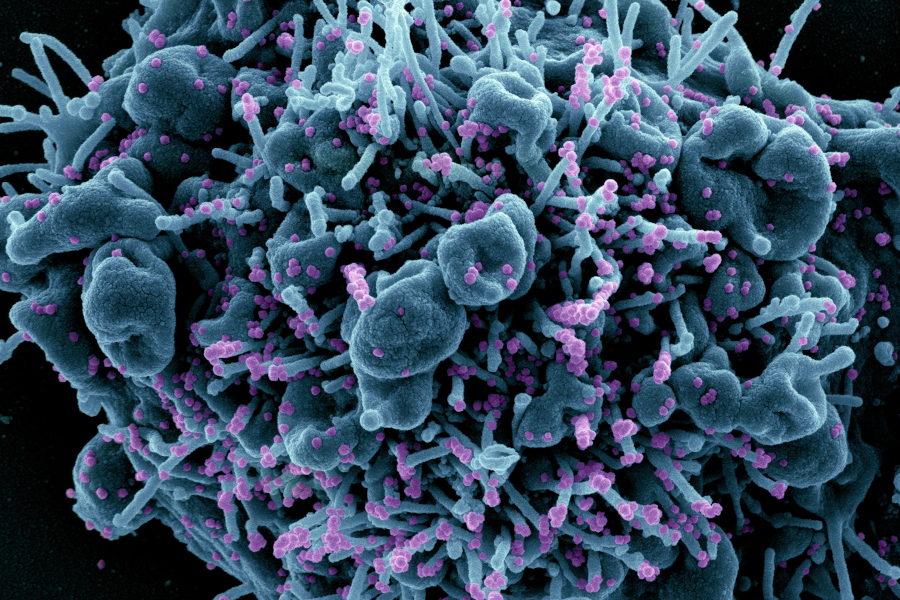- A research by researchers from the United States, Brazil, University of Lleida and the CERCA centers IrsiCaixa and Agrotecnio demonstrates this
Lleida, 2 March 2023. A type of protein called cyanovirin-N is able to stop the transmission of new variants of SARS-CoV-2, causing COVID-19, especially Delta and Omicron. This molecule, similar to vaccine-generated anticoagulants, binds to the Spike protein of the coronavirus, blocking its entry into cells. This is the finding of a research study involving Agrotechnology and University of Lleida (UdL) researchers, led by the Frederick National Laboratory for Cancer Research (USA) and published in the journal Proceedings of the National Academy of Sciences (PNAS). Researchers from the Institute for AIDS Research (IrsiCaixa) and the Federal University of Rio de Janeiro (Brazil) have also participated in the study.
Lectins are proteins that bind carbon hydrates produced by plants, algae and cyanobacteria. Some can neutralize viruses embolized with external glycoproteins, offering an alternative therapeutic approach. Cyanovirin-N has previously shown its efficacy in preventing viruses such as Ebola, influenza, hepatitis C and HIV from entering cells, but until now its efficacy with SARS-CoV-2 has not been demonstrated. The international team has demonstrated this in cell cultures in the laboratory and in animal models, finding a reduction in viral shedding at the level of the nasoid fossae and lungs. The next step would be to prove the efficacy of this compound in humans through clinical trials..
To carry out its function, cyanovirin-N binds to a different part of the SARS-CoV-2 Spike protein than the one that binds the active principle of vaccines, antiviral drugs and monoclonal anticoagulant therapies, authorized by the European Medicines Agency for COVID-19. Thus, the use of these molecules would be compatible with the other therapeutic strategies and could complement them.
«This lectin could have several advantages over vaccines. On the one hand, its effect would be more immediate, since it would not be necessary to wait for the immune system to generate anticoagulants. Moreover, for people whose immune system does not respond correctly, as is the case of people with immunodeficiencies, cyanovirin-N would be a good therapeutic option,» says IrsiCaixa’s principal investigator, Julià Blanco.
The compost could be easily obtained through vegetable production systems. «We know that large-scale production of this molecule is viable and economically feasible, even for low-income countries,» says Paul Christou, ICREA research professor at the UdL and principal investigator of the Applied Biotechnology group. Besides him, in this research, also from the Applied Biotechnology group, Teresa Capell, the Associate Professor of Chemistry, Gemma Villorbina, and the tenured professor of the Faculty of Medicine and IRB Lleida, Manel Portero.
NOTÍCIES RELACIONADES: La Cianovirina-N podria frenar la infecció pel SARS-CoV-2
Text: Comunicació IrsiCaixa/Premsa UdL
Imatge: IrsiCaixa

